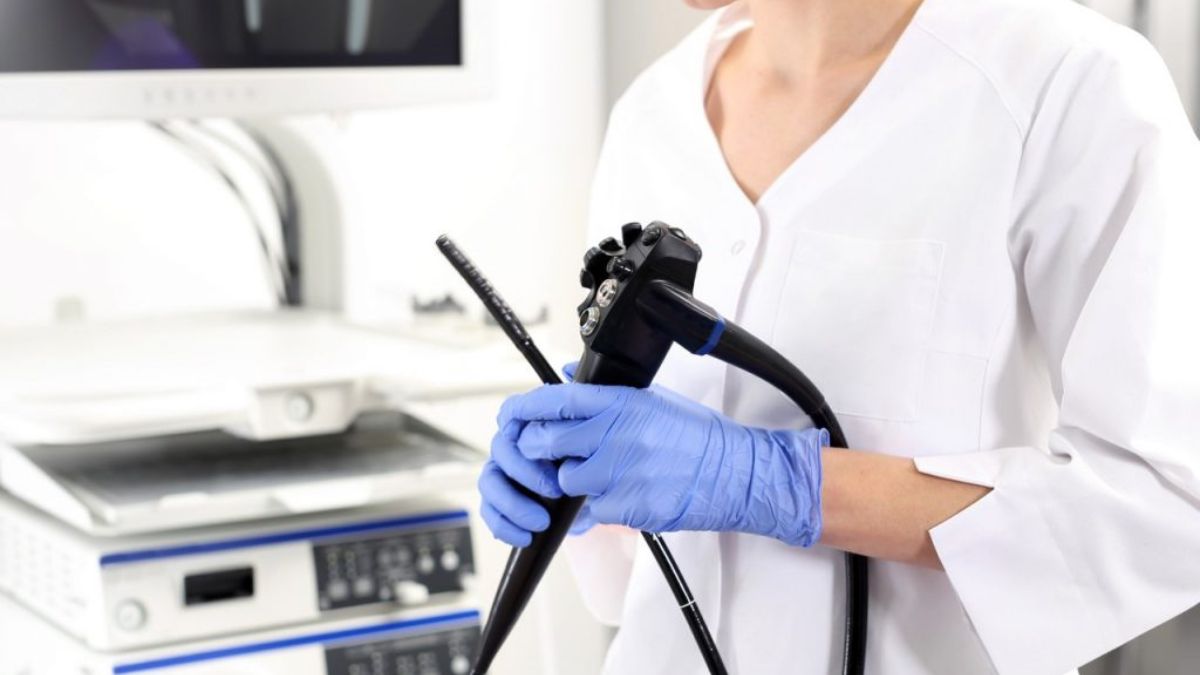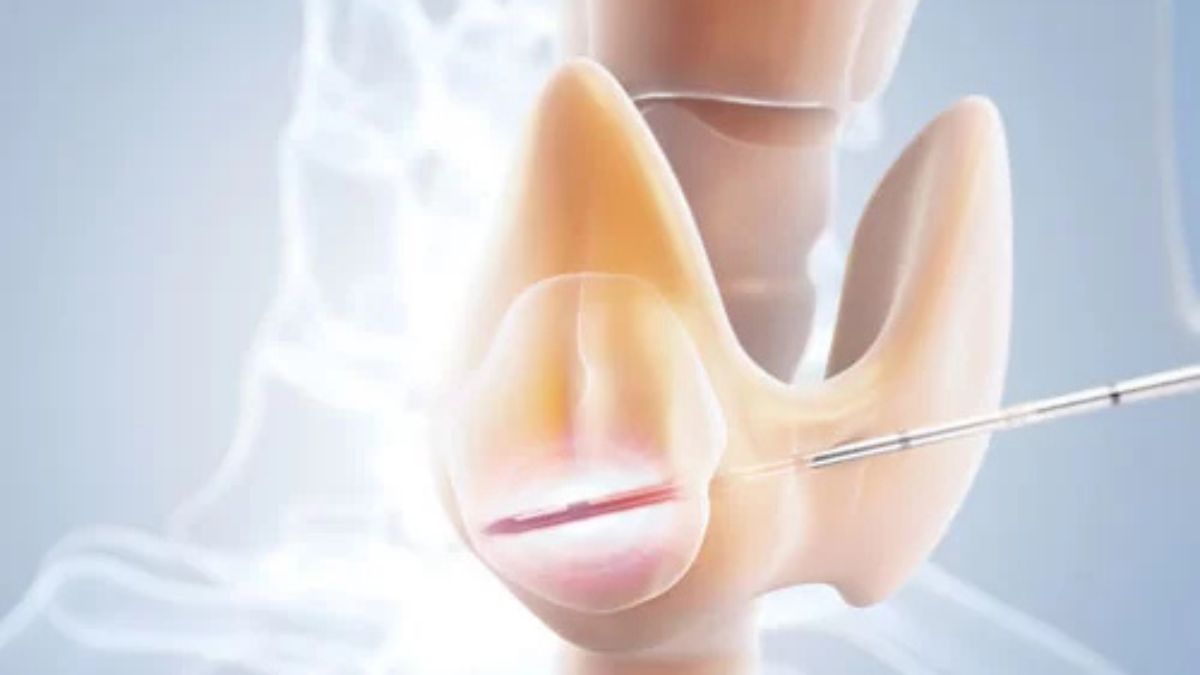HEALTH
Understanding The Importance Of Colonoscopies

Early Detection Saves Lives
Colonoscopies are a big deal because they can spot problems early. Finding something like a polyp when it’s small makes a huge difference. It’s way easier to deal with something in its early stages. Think of it like finding a small leak in your roof versus dealing with a flooded house.
Early detection means better treatment options. The sooner you know, the more choices you have. Plus, early treatment is often less intense and has a higher success rate.
It’s not just about cancer; colonoscopies can find other issues too. Things like inflammation or other problems in your digestive tract can be identified and managed.
Preventing Colon Cancer
Colonoscopies are a key tool in preventing colon cancer. They allow doctors to find and remove polyps before they turn cancerous. It’s like weeding your garden before the weeds take over.
Removing polyps is a straightforward way to reduce your cancer risk. These polyps are often the starting point for colon cancer, so getting rid of them is a big win. It’s a proactive step you can take for your health.
Think of a colonoscopy as a regular check-up for your colon. Just like you get your teeth cleaned to prevent cavities, a colonoscopy helps keep your colon healthy.
Routine Screening Recommendations
Guidelines suggest starting routine colonoscopies around age 45. This is the age when the risk of colon cancer starts to increase. It’s a good idea to talk to your doctor about when you should start screening.
Regular screening is important, even if you feel fine. Colon cancer often develops without any symptoms in the early stages. So, don’t wait until you have a problem to get checked.
Your doctor might recommend earlier or more frequent screenings if you have risk factors. Things like family history or certain medical conditions can change the screening schedule.
Common Misconceptions About Colonoscopies

Many people hesitate to schedule a colonoscopy due to common misconceptions. Let’s clear up some of those myths and understand the reality of this important screening.
Pain and Discomfort Myths
Many believe colonoscopies are painful. This is often untrue. Patients are usually sedated, making the procedure painless. Any discomfort is typically minimal and short-lived.
Preparation Concerns
The prep process is a common worry. It used to involve drinking large volumes of unpleasant liquids. Now, there are improved options, like smaller volumes and better-tasting solutions. Some even involve pills. The colonoscopy prep isn’t as bad as you think.
Fear of Results
Some people avoid colonoscopies because they fear what might be found. Early detection is key. Finding polyps early means they can be removed before they become cancerous. It’s better to know and take action than to remain in the dark.
The Role Of Colonoscopies In Cancer Prevention
Identifying Polyps Early
Colonoscopies are super important because they help doctors find polyps early. Polyps are small growths that can turn into cancer if they’re not removed. Finding them early means a better chance of stopping cancer before it even starts.
Think of it like weeding a garden. You pull out the weeds before they take over.
Reducing Cancer Risk
Colonoscopies directly reduce your risk of getting colon cancer. By removing polyps, doctors prevent them from becoming cancerous. It’s a proactive step you can take to protect your health.
It’s like changing the oil in your car. Regular maintenance prevents bigger problems down the road.
Guidelines For Screening Ages
Guidelines suggest starting colonoscopy screenings around age 45. However, if you have a family history of colon cancer or experience symptoms, your doctor might recommend starting earlier. It’s all about personalized care.
Colonoscopies are a key tool in cancer prevention. They help find and remove polyps before they become cancerous, significantly reducing your risk. Talk to your doctor about when you should start screening.
Symptoms That Should Prompt A Colonoscopy

Persistent Abdominal Pain
Don’t ignore that nagging bellyache. Persistent abdominal pain, especially if it’s new or different, could be a sign. It might feel like cramps, gas, or just a general discomfort that won’t go away.
It’s easy to brush off as something you ate, but it’s better to be safe than sorry. If the pain is severe or lasts for more than a few days, it’s time to talk to your doctor about a possible colonoscopy.
Ignoring persistent abdominal pain can lead to delayed diagnosis and treatment of underlying conditions.
Changes In Bowel Habits
Has your bathroom routine suddenly changed? Are you experiencing unexplained diarrhea or constipation? These changes in bowel habits can be a red flag.
It’s important to pay attention to the frequency, consistency, and urgency of your bowel movements. A sudden shift, especially if it lasts for more than a week or two, warrants a conversation with your doctor about a colonoscopy.
Here’s a quick checklist:
- Increased frequency
- Decreased frequency
- Change in stool consistency
Blood In Stool
Seeing blood in your stool is never normal. It can be alarming, and it’s definitely a reason to get checked out. While it could be something minor like hemorrhoids, it could also indicate a more serious problem, like colon cancer.
Don’t delay seeking medical advice. A colonoscopy can help determine the source of the bleeding and rule out any serious conditions. Early detection is key to successful treatment.
Consider these points:
- Any amount of blood should be checked.
- Don’t assume it’s “just hemorrhoids.”
- A colonoscopy can provide answers.
Advancements In Colonoscopy Procedures
Improved Preparation Methods
Prep for a colonoscopy used to be the stuff of nightmares. Huge volumes of awful-tasting liquid? No thanks! But things have changed. Now, there are options with smaller volumes and better flavors.
Some even involve pills instead of liquids. It’s way easier than it used to be.
This makes the whole process less daunting.
Minimally Invasive Techniques
Colonoscopies themselves have become more advanced. The equipment is better, and doctors are more skilled. This means less discomfort and faster recovery times.
They use smaller instruments. Colonoscopy procedures are now quicker and more efficient.
The goal is to make the experience as smooth as possible for the patient.
Enhanced Patient Comfort
Patient comfort is a big focus. Sedation is used to keep you relaxed and pain-free during the procedure. Recovery is generally quick, with most people back to normal activities the next day.
The whole process is designed to be as comfortable as possible. This includes everything from the prep to the procedure itself.
It’s all about making it easier for people to get screened.
The Rising Rates Of Colon Cancer
Impact On Younger Adults
It’s a bit of a shock, but colon cancer is showing up more in younger adults. For years, it was considered an older person’s disease, but that’s changing. This trend is prompting doctors to recommend earlier screening ages.
This rise in cases among younger folks is a real concern. We need to understand why it’s happening and what we can do about it. It’s not just about older adults anymore; everyone needs to be aware.
It’s important to know your family history and talk to your doctor if you have any symptoms. Early detection is key, no matter your age.
Statistics And Trends
Colorectal cancer is the third most common cancer diagnosed in the United States. Sadly, rates are increasing in those under 50, which led to a recommendation to lower the first screening age to 45.
Colonoscopies are a great tool for detecting and preventing colon cancer. They allow doctors to find and remove polyps before they become cancerous.
Despite increased awareness, many people still aren’t getting screened. This is a problem because early detection can significantly improve outcomes.
Importance Of Early Screening
Early screening is super important. Colonoscopies can catch polyps before they turn into cancer. Finding things early makes treatment way easier and more effective.
Waiting until you have symptoms can be risky. Often, by the time symptoms show up, the cancer has already progressed. That’s why regular screening is so important, even if you feel fine.
Don’t delay! Talk to your doctor about when you should start getting screened. It could save your life.
Accessing Colonoscopy Services In Singapore
Local Healthcare Facilities
Singapore boasts a robust healthcare system. Getting a colonoscopy is straightforward. Many public and private hospitals offer the procedure.
Consider places like Singapore General Hospital or Mount Elizabeth. These facilities have experienced specialists. They also use advanced equipment.
Waiting times can vary. Public hospitals might have longer waits. Private facilities often offer quicker appointments.
Insurance Coverage Options
Understanding your insurance is key. Most Singaporeans have health insurance. This often covers colonoscopies, especially if recommended by a doctor.
Check your policy details carefully. Know what’s covered and what isn’t. Some policies might require pre-authorization.
Don’t hesitate to contact your insurance provider. Clarify any doubts about coverage for a colonoscopy. This avoids unexpected bills.
Finding A Specialist
Finding the right specialist is important. Ask your general practitioner for a referral. They can recommend a gastroenterologist.
Look for doctors with experience in colonoscopies. Check their credentials and patient reviews. A good doctor will explain the procedure clearly. If you’re considering this procedure locally, it’s helpful to explore options for a colonoscopy Singapore specialists offer, as many clinics provide comprehensive care and state-of-the-art facilities.
Consider factors like location and clinic hours. Choose a specialist that fits your needs. Early colonoscopy is key.
Don’t Wait Any Longer
In conclusion, putting off your colonoscopy can have serious consequences. While it might seem easy to ignore, the risks of delaying this important screening far outweigh the temporary discomfort of the procedure. Colon cancer can develop silently, and by the time symptoms appear, it might be too late. Early detection through a colonoscopy can save lives, and the process has become more manageable than ever. So, if you’re due for a screening, don’t hesitate. Schedule that appointment today and take a proactive step towards your health.
HEALTH
How Plastic Surgery Can Boost Your Confidence

In contemporary society, confidence is a very important aspect in our personal as well as professional lives. A lot of people have had insecurity concerns when it comes to their physical appearances, which can have an effect on how they relate with other people, as well as how they see themselves. There are some individuals who have plastic surgery as a means to improve their physical appearances, which can help them develop confidence in the process as well. But how is confidence increased through plastic surgery?
Understanding the Connection Between Looks and Confidence
Physical appearance often affects our perception of ourselves. Sometimes our perception of flaws and imperfections in our body and facial features affects our own confidence and feelings about our appearance. Such insecurities can affect our behavior in social settings and our performances at work. For some people, it is a struggle to reconcile their appearance and feelings about that appearance.
Plastic surgery bridges the gap for people wishing to overcome specific physical issues. With the help of plastic surgery, people are able to synchronize their outward look with their inner self-perception. In other words, individuals who undergo the surgery can overcome their anxiety regarding their looks and increasing self worth.
How Plastic Surgery Addresses Personal Insecurities
Among the top reasons why people undergo plastic surgery is the correction of zones within their appearance that have long made them unhappy with what they look like. It could be a rhinoplasty to remake the shape of the nose. It could be a facelift to remove the signs of aging. It could be breast augmentation to improve the body’s proportions that have long had a detrimental effect on their confidence.
As people feel better about their appearance, they also notice that their self-esteem improves. This liberation from their own criticism encourages people to feel at ease with others and to be who they are without fear. This emotional shift can be as significant as the physical transformation itself for people.
Psychological Gains Independent of Physical Alterations
Even though the effects of plastic surgery are seen and felt physically, there are psychological gains that can be more dramatic. Plastic surgery patients feel empowered and more capable of taking charge of their lives. They can gain a feeling of accomplishment through their desired reconstruction.
In addition, the increased self-confidence may impact every sphere of life. That is, it may bring increased motivation towards personal and career goals, frequent trying of new experiences, and healthy relationships. The positive feedback associated with increased confidence often ripples way beyond the initial cosmetic change.
The Importance of Realistic Expectations
While plastic surgery is proven to offer considerable emotional and psychological relief, it must be considered from a realistic angle. Plastic surgery is not a cure for all worries and problems faced in life. It is only an aid in ensuring an individual feels connected to his or her ideal self-image.
Additionally, before arranging for plastic surgeries to be performed, one should have very open conversations with professional surgeons to learn more about the end results. A person who embarks on plastic surgeries, yet maintains a very level-headed perspective throughout the process, stands to gain the most benefits concerning confidence.
Plastic Surgery as a Means of Moving Towards Self-Care
The decision to undertake plastic surgery should also be recognized as a form of self-care. This is because undertaking plastic surgery indicates that one is actually investing in their well-being. The decision to prioritize these aspects of one’s well-being indicates that they have finally turned a new leaf.
The motives for undergoing plastic surgery can represent significant aspects of personal growth and self-awareness. It is the realization that it is necessary to feel good and look good in order to be happy. When people treat themselves with kindness and respect, including through cosmetic enhancements, it contributes to a healthier relationship with their self-image.
Overcoming Social Stigmatisms of Plastic Surgery
While plastic surgery has indeed grown in popularity, there remains a degree of associated social stigma. Misconceptions regarding vanity or superficiality may prevent those who could genuinely benefit from the associate improvement in their quality of life. Nevertheless, attitudes are changing with more and more people realizing the mental health benefits associated with cosmetic interventions.
By talking about plastic surgery as a confidence booster, many would be judged less and more understanding. Self-confidence is a very personal thing, and everyone has the right to be comfortable and happy in their own skin, whatever way they feel that is attained.
Plastic Surgery Embracing Confidence
Plastic surgery may make important contributions to confidence through responses to physical insecurity and even psychological treatments. It is not a cure, but the right operation, with realistic expectations, can help individuals feel more consistent with their self-image and empowered to participate in life fully.
Ultimately, confidence comes from accepting and loving oneself, and for some, plastic surgery is an important and valuable part of that process. If people take good care of themselves and make smart choices, then they can use plastic surgery as a tool that can help inspire a renewed sense of self-worth.
HEALTH
Winter Care for Women: Preventing UTIs and Vaginal Infections

Introduction
Winter and high pollution periods can influence daily habits and natural immunity, increasing the risk of urinary tract and vaginal infections in women. Colder temperatures often lead to reduced water intake, layered clothing, prolonged indoor stays and changes in hygiene practices, all of which may affect urogenital health. At the same time, seasonal stress, lack of sunlight and lowered immunity can make the body more susceptible to bacterial and fungal infections.
Why Does Winter Raise UTI and Vaginal Infection Risk?
Winter can affect daily habits and body defences, increasing infection risk. The following factors contribute to this rise.
- Behavioural Drivers: People may drink less water in cold weather and delay urination, increasing bacterial concentration in urine. Tight, non-breathable clothing and dampness after exercise trap moisture and encourage microbial growth.
- Physiological Factors: Seasonal viral infections, poor sleep and stress may reduce immune strength in the urogenital tract. Reduced indoor humidity may cause dryness and micro-abrasions that allow infection.
- Environmental Contributors: Pollution may increase inflammation and weaken mucosal defence. Together, these factors explain the seasonal rise in cystitis and vaginal infections.
Common Conditions and What They Mean
Understanding common winter-related infections helps in early detection and treatment.
- Uncomplicated Lower UTI (Cystitis): Sudden urinary frequency, urgency, burning sensation and cloudy or strong-smelling urine. Needs timely care to prevent spread to kidneys.
- Pyelonephritis (Upper UTI): Fever, flank pain and nausea suggest kidney involvement and require urgent attention.
- Vulvovaginal Candidiasis: Itching, thick white discharge and discomfort; often linked to moisture, antibiotic use or diabetes.
- Bacterial Vaginosis: Thin grey discharge with a fishy odour, caused by an imbalance of vaginal bacteria.
- Sexually Transmitted Infections (STIs): May present with abnormal discharge and require targeted testing and partner treatment.
Prevention Checklist – Practical Winter Measures That Work
Before implementing preventive steps, it is important to understand how daily habits can influence infection risk.
- Hydration and Regular Voiding: Sip fluids throughout the day and avoid holding urine for long periods.
- Clothing and Hygiene: Wear breathable cotton underwear, avoid tight synthetic garments for long hours and change damp clothes promptly.
- Toilet Care: Wipe front to back and avoid douching or scented products that disturb natural flora.
- Post-Sex Habits: Urinate after intercourse, avoid irritants and use barrier protection when required.
- Manage Comorbidities: Maintain blood sugar if diabetic and complete full antibiotic courses when prescribed.
- Environmental Measures: Use indoor humidifiers to prevent dryness and shower after exposure to pollution.
- Proactive Health Behaviours: If infections recur, speak with a gynaecologist or women’s health specialist about preventive options.
When to Consult a Gynaecologist or Seek Urgent Care?
You should book a gynaecologist near me or women’s health specialist near me via Apollo 24|7 if you have fever with urinary symptoms, flank pain, persistent symptoms despite initial treatment, recurrent UTIs, severe vaginal discomfort or symptoms of an STI. Seek urgent care for high fever, severe flank pain, vomiting, dizziness or signs of sepsis. Teleconsultation may help with early guidance and referral if needed.
You may also consult a gynaecologist in Kolkata through Apollo 24|7 when symptoms persist or worsen.
What a Specialist Will Do – Diagnostic and Management Approach
During consultation, the specialist follows a stepwise evaluation and treatment process.
- Initial Tests: Urine dipstick, microscopy, urine culture if needed and vaginal swabs for candida, BV or STIs.
- Further Evaluation: Renal ultrasound or CT for suspected complicated infections; bladder scan or urodynamics for voiding issues.
- Treatment Approach: Simple cystitis may need empirical treatment. Vaginal infections like candidiasis and BV receive topical or oral medication. Recurrent cases require tailored therapy and sometimes multidisciplinary care.
- Follow-Up: Symptom review, advice on prevention and referral to urology if structural issues are suspected.
Preparing for Your Appointment on Apollo 24|7
Before your consultation, be ready with your medical details.
- Have Ready: Symptom timeline, recent test reports, current medications, allergies, pregnancy status and any imaging results.
- Booking Tips: Search terms such as gynaecologist near me, best gynaecologist near me, gynaecologists near me, best gynaecologists near me or women’s health specialist near me can help find suitable options.
- What to Expect: A clear diagnosis plan, treatment if required and personalised prevention advice. The specialist will guide if in-person tests are necessary.
Conclusion
Winter may increase the risk of UTIs and vaginal infections due to lower immunity, reduced hydration and lifestyle changes. Most infections are preventable with simple habits like staying hydrated, maintaining hygiene and wearing breathable clothing. If symptoms recur or do not improve, consulting a gynaecologist near me via Apollo 24|7 ensures timely diagnosis and proper care. Early medical attention helps avoid complications and supports better comfort and health during the colder months.
HEALTH
Minimally Invasive Thyroid Nodule Treatments Available in Singapore

Thyroid nodules are a common clinical finding, and while most are benign, they can cause discomfort, aesthetic concerns, or, in rare cases, indicate malignancy. In Singapore, the rise of routine health screenings has led to increased detection of thyroid nodules, and patients are often concerned about invasive surgery, scarring, and recovery time. Fortunately, minimally invasive thyroid nodule treatments offer effective alternatives that reduce downtime while delivering precise outcomes.
As an endocrinologist practicing in Singapore, I frequently see patients seeking guidance on safe and efficient nodule management. Understanding the range of treatment options, their benefits, and limitations is crucial for making informed decisions.
Understanding Thyroid Nodules
A thyroid nodule is a growth or lump in the thyroid gland, located in the neck just below the Adam’s apple. Nodules vary in size, composition, and clinical significance. They may be solid or fluid-filled (cystic) and can present as a single nodule or multiple nodules. While the majority are benign, features such as rapid growth, suspicious ultrasound characteristics, or abnormal lab results warrant further investigation.
Patients often experience anxiety upon discovery of a nodule. The first step is a thorough evaluation, including physical examination, thyroid function tests, and imaging studies such as ultrasound. This assessment guides the choice of treatment, from observation to minimally invasive interventions.
For patients seeking thyroid nodule treatment Singapore, it’s important to understand that not all nodules require surgery. Many can be managed effectively with targeted, minimally invasive procedures that preserve thyroid function and minimize complications.
When Minimally Invasive Treatments Are Appropriate
Minimally invasive interventions are typically recommended for:
- Symptomatic benign nodules causing discomfort, difficulty swallowing, or breathing issues.
- Cystic or predominantly cystic nodules that recur after aspiration.
- Nodules with cosmetic concerns, particularly when located in the visible areas of the neck.
- Patients wishing to avoid conventional surgery or those unsuitable for general anesthesia.
The decision depends on nodule size, type, symptoms, and patient preference. In Singapore, advanced imaging and procedural techniques allow endocrinologists to tailor treatment plans safely and effectively.
Common Minimally Invasive Treatments
1. Ultrasound-Guided Fine Needle Aspiration (FNA)
FNA is both a diagnostic and therapeutic tool. A thin needle is used under ultrasound guidance to extract cells from the nodule for cytological examination. While primarily diagnostic, FNA can also provide temporary relief for cystic nodules by aspirating fluid, reducing nodule size and pressure symptoms.
2. Radiofrequency Ablation (RFA)
Radiofrequency ablation is a cutting-edge technique widely used in Singapore. RFA delivers thermal energy through a thin electrode inserted into the nodule under ultrasound guidance, causing controlled tissue destruction. Over weeks to months, the treated nodule shrinks significantly, alleviating symptoms without the need for surgical removal.
RFA is particularly effective for solid and mixed nodules. Advantages include:
- Preservation of normal thyroid tissue.
- Minimal scarring, as the procedure is performed percutaneously.
- Short recovery time, often allowing patients to resume daily activities immediately.
3. Laser Ablation
Laser ablation uses focused light energy to coagulate nodule tissue. Similar to RFA, it is performed under ultrasound guidance and is suitable for nodules causing cosmetic or functional concerns. Laser ablation provides precise control over the treated area, minimizing damage to surrounding tissue.
4. Ethanol Ablation (Ethanol Injection)
Ethanol ablation involves injecting concentrated alcohol into cystic or predominantly cystic nodules, inducing fibrosis and shrinkage. This approach is highly effective for recurrent cysts and is minimally invasive, performed under local anesthesia in an outpatient setting.
5. High-Intensity Focused Ultrasound (HIFU)
HIFU is an emerging non-invasive technique that uses focused ultrasound energy to heat and destroy nodule tissue without any needle puncture. While still less common than RFA or laser ablation, HIFU is ideal for patients who prefer completely non-invasive treatment.
Advantages of Minimally Invasive Treatments
Minimally invasive interventions offer several benefits over conventional surgery:
- Reduced Recovery Time: Most patients can return to normal activities within a day or two.
- Preservation of Thyroid Function: Unlike surgery, which may require partial or total thyroid removal, these treatments preserve healthy tissue.
- Minimal Scarring: Small puncture sites or no incisions reduce visible scarring.
- Lower Risk of Complications: There is reduced risk of nerve injury, infection, and bleeding compared to open surgery.
Patient Considerations and Follow-Up
Although minimally invasive procedures are highly effective, patients should understand that results may vary depending on nodule size and type. Repeat treatments may occasionally be required, especially for larger nodules.
Regular follow-up includes ultrasound monitoring and thyroid function tests to ensure the nodule shrinks appropriately and to detect any new growth. In Singapore, clinics offering these treatments often provide comprehensive follow-up care, ensuring patient safety and long-term outcomes.
Lifestyle and Supportive Measures
While medical intervention is the cornerstone of treatment, supportive measures can enhance outcomes:
- Maintaining a balanced diet rich in iodine, vitamins, and minerals to support thyroid health.
- Avoiding excessive neck trauma or strain.
- Monitoring for symptoms such as neck swelling, voice changes, or difficulty swallowing.
Educating patients about their condition and providing reassurance are integral to successful management. Many patients experience anxiety upon nodule detection, and clear communication about treatment options, benefits, and risks can alleviate concerns.
Choosing a Specialist in Singapore
Selecting an experienced endocrinologist or thyroid specialist is critical. Clinics that specialize in thyroid care offer advanced diagnostic tools, procedural expertise, and personalized treatment plans.
For patients seeking thyroid nodule treatment in Singapore, it’s important to choose a provider who can assess whether minimally invasive techniques are appropriate and who can guide you through every step of the process.
Conclusion
Minimally invasive thyroid nodule treatments provide effective, safe, and cosmetically favorable alternatives to conventional surgery. In Singapore, advancements such as RFA, laser ablation, ethanol injection, and HIFU have revolutionized care, allowing patients to address nodules efficiently while minimizing downtime and preserving thyroid function.
Ultimately, early detection, proper evaluation, and individualized treatment planning are key to optimal outcomes. With expert guidance and minimally invasive interventions, patients can manage thyroid nodules confidently, achieving both functional and aesthetic satisfaction.
-

 TECHNOLOGY7 months ago
TECHNOLOGY7 months agoTop 10 Must-Read Stories from Kristen Archives You Can’t Miss
-

 TECHNOLOGY1 year ago
TECHNOLOGY1 year agoSky Bri Net Worth Revealed: How She Built Her Financial Empire
-

 TOPIC1 year ago
TOPIC1 year agoBasement Renovation Contractors: How They Tackle Structural Issues During Renovations
-

 TOPIC9 months ago
TOPIC9 months ago5 Reasons the //Vital-Mag.Net Blog Dominates Lifestyle
-

 TOPIC8 months ago
TOPIC8 months agoTop 10 Articles from the ://Vital-Mag.net Blog That You Can’t Miss
-

 BEAUTY1 year ago
BEAUTY1 year agoRevitalize Your Hair with Oribe Hair Care for Damaged Hair: Style It with Blue Dresses for Weddings and Events
-

 CRYPTO11 months ago
CRYPTO11 months agoCrypto30x.com Review: Is It the Right Platform for You?
-

 BUSINESS7 months ago
BUSINESS7 months agoTraceLoans Explained What You Need to Know
